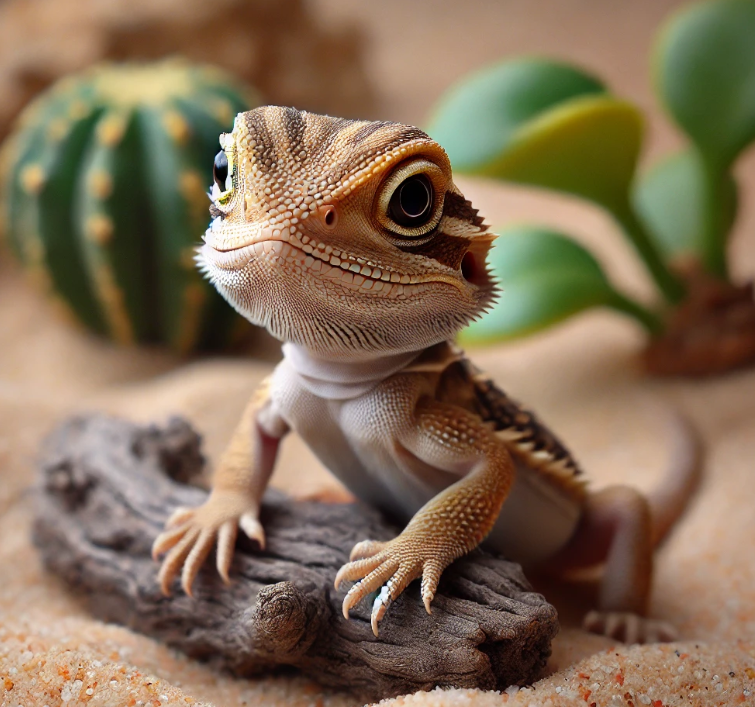Bearded dragons are popular pets known for their friendly nature and unique appearance. To keep these reptiles healthy, proper nutrition is essential, and one of the most important aspects of their diet is calcium supplementation. In this blog post, we'll explore why calcium is crucial for bearded dragons, how to provide it, and the best practices for ensuring your scaly friend gets the nutrients they need.
Why Bearded Dragons Need Calcium
Calcium plays a vital role in the health of bearded dragons. It is essential for the development and maintenance of strong bones and teeth. Without sufficient calcium, bearded dragons are at risk of developing metabolic bone disease (MBD), a serious condition that can lead to weakened bones, deformities, and even death.
In the wild, bearded dragons naturally obtain calcium from the insects and plants they consume. However, in captivity, it can be challenging to replicate the exact nutritional content of their natural diet. This is where calcium supplements come in.
Choosing the Right Calcium Supplement
When selecting a calcium supplement for your bearded dragon, there are a few key factors to consider:
-
Calcium with or without Vitamin D3: Vitamin D3 helps bearded dragons absorb calcium. If your bearded dragon is exposed to natural sunlight or has a high-quality UVB light in their enclosure, they may not need additional D3. However, if your dragon spends most of its time indoors with limited UVB exposure, choosing a supplement with D3 is recommended.
-
Phosphorus-Free: Bearded dragons need a diet that is low in phosphorus, as too much phosphorus can inhibit calcium absorption. Always opt for a calcium supplement that is phosphorus-free.
-
Powdered vs. Liquid: Calcium supplements are available in both powdered and liquid forms. Powdered supplements are the most commonly used, as they can be easily dusted onto insects or mixed with vegetables. Liquid supplements are also effective and can be added directly to your dragon’s food or water.
How to Administer Calcium Supplements
-
Dusting Insects: The most common method of providing calcium is by dusting live insects with a powdered supplement before feeding them to your bearded dragon. Place the insects in a plastic bag or container with the powder, shake gently, and then offer the insects to your dragon.
-
Mixing with Vegetables: For dragons that enjoy their greens, you can sprinkle calcium powder onto their vegetables. This method works well for dragons that may be less enthusiastic about eating insects.
-
Using a Liquid Supplement: If you opt for a liquid supplement, simply follow the dosage instructions on the bottle. You can add the liquid to your dragon’s food or directly into their water dish.
How Often Should You Supplement?
The frequency of calcium supplementation can vary depending on your bearded dragon’s age and health:
- Juveniles: Young bearded dragons are growing rapidly and require more calcium. Dust their food with calcium powder 4-5 times per week.
- Adults: Adult bearded dragons require less frequent supplementation. Dust their food 2-3 times per week.
- Seniors: Older dragons may benefit from more frequent supplementation as they are more prone to bone density loss. Consult your veterinarian for specific recommendations.
Monitoring for Signs of Calcium Deficiency
Despite regular supplementation, it’s important to keep an eye out for signs of calcium deficiency, including:
- Soft or rubbery jaw and limbs
- Lethargy and weakness
- Tremors or twitching
- Decreased appetite
If you notice any of these symptoms, it’s crucial to consult a reptile-savvy veterinarian immediately.
Conclusion
Calcium supplementation is a key component of keeping your bearded dragon healthy and happy. By choosing the right supplement and administering it correctly, you can prevent serious health issues like metabolic bone disease and ensure your dragon thrives in captivity.
Remember, the best way to determine the exact needs of your bearded dragon is to consult with a veterinarian who specializes in reptiles. At Petwave, we’re here to support you with high-quality products and expert advice to help you care for your beloved pets.
For more information on bearded dragon care, check out our other blog posts and browse our selection of reptile supplies at Petwave.

